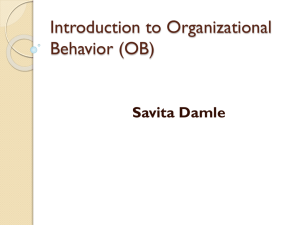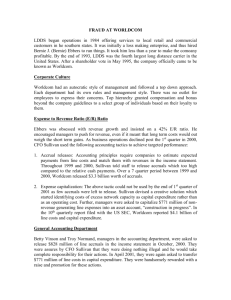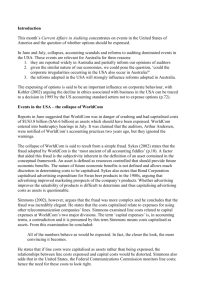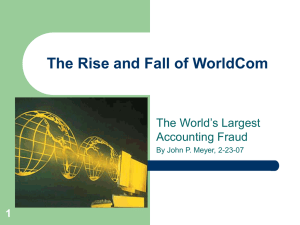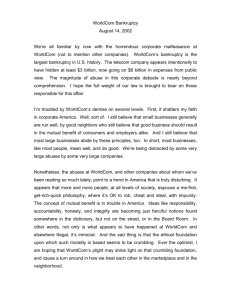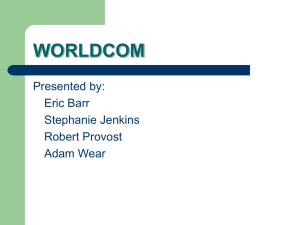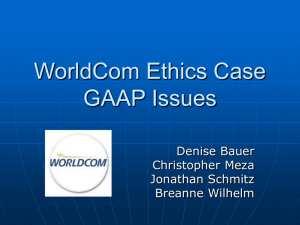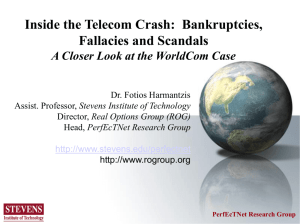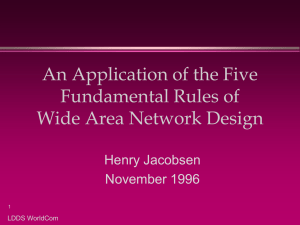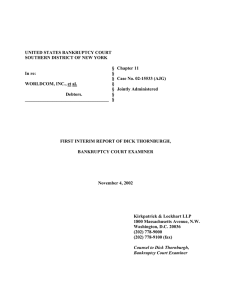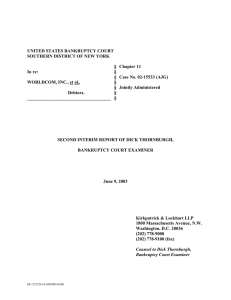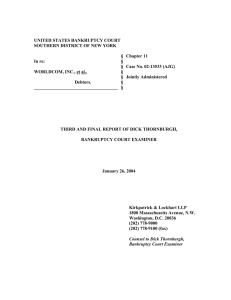WorldCom
advertisement
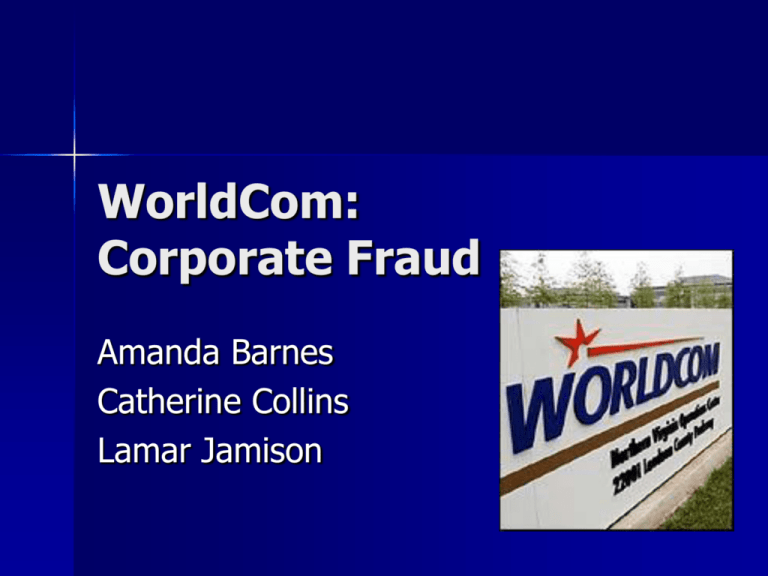
WorldCom: Corporate Fraud Amanda Barnes Catherine Collins Lamar Jamison WorldCom Background Huge telecommunications company Largest in the U.S. Held responsible for waking up it’s somewhat sluggish industry in the early 90’s Industry Telecommunications giant Provided: – Internet Services – Long Distance and various other phone services for a cheaper price than competitors WorldCom’s Ascension AT&T monopoly break-up CEO Bernie Ebbers repackages leftovers and sells them at a bargain price. Broadened services available. WorldCom’s Ascension 75 mergers and acquisitions of smaller companies. Bought competitor MCI. Attempted to buy Sprint in 2000. Anti-trust regulations wouldn’t allow Sprint acquisition. WorldCom’s Fall The company began to fall in 1999 with massive lay offs and the steady decline of it’s stock price. Stock prices for WorldCom were around 60 dollars and dropped to pennies in 2002. Business sector mergers were unsuccessful. Stock Price Bernie Ebbers Founder of WorldCom Aggressive businessman who seemed to be the fire for WorldCom's success. Fed new ideas into the company for expansion Bernie Ebbers Resigned after allegedly using funds from his company to cover his losses from his stock holdings This brought into question the supposed “earnings” for WorldCom's 2002-2004 fiscal years. Various Scandals Many companies under the eye of the government after financial scandals such as Enron surfaced. WorldCom watched closely because of it’s shaky future outlook Accountants everywhere under speculation at major corporations. Financial Accountants Accounting firms and auditors for companies are in charge of a company’s financial reports. They must know the federal regulations for reporting earnings and such so that no figures are misrepresented. Accounting Help companies answer these questions: – how much they made – how much they can save – how much they should pay in government taxes – how much they can use for other things (expansion, dividends, etc.) The Scandal In July 2004, Congress is notified by Scott D. Sullivan of financial mistakes August 9th WorldCom’s auditors uncover $3.8 billion dollars in improper accounting SEC claims that the total for fraudulent accounting comes to $9 billion dollars and dates back to 1999. The Scandal Banking firm awards WorldCom execs with IPO stock based on the false earnings they reported. WorldCom executives reaped massive gains from these IPO stocks. Both Bernie Ebbers and Scott Sullivan received shares. Upper Management Chief Financial Officer Scott Sullivan and Controller David Myers arrested. Myer’s pleads guilty to three counts of conspiracy Chief Executive John W. Sidgmore steps aside from his post Buford Yates Jr. pleads guilty to two counts of securities fraud and conspiracy Upper Management Betty L. Vinson and M. Normand, former finance officials, are charged with conspiracy. Six other WorldCom directors resign on December 18th Government Involvement Despite conspiracy charges and uncovered financial fraud the government still keeps WorldCom’s eligibility to file for bankruptcy. The U.S. gives $2 billion dollars in assets to tap Government Involvement $20 million dollars over the span of three years given to new CEO WorldCom still allowed to oversee government projects Impact on the Financial World Impact Overall investor distrust with companies undergoing similar problems. National feeling that the stock market is not as safe as previously thought. SEC forced to keep a closer look on auditor and accountant dealings Employment WorldCom forced to lay off 17,000 workers in order to cut costs. Another 3,000 expected to be cut in the next few months One employer is given a settlement after suing the company for pain and suffering and monetary loss. Conclusion
